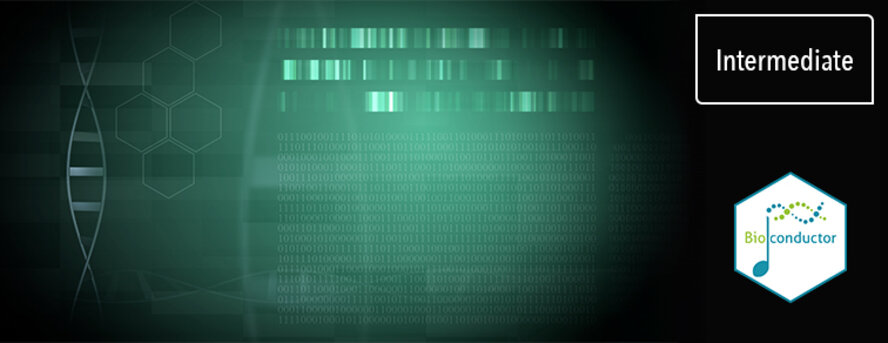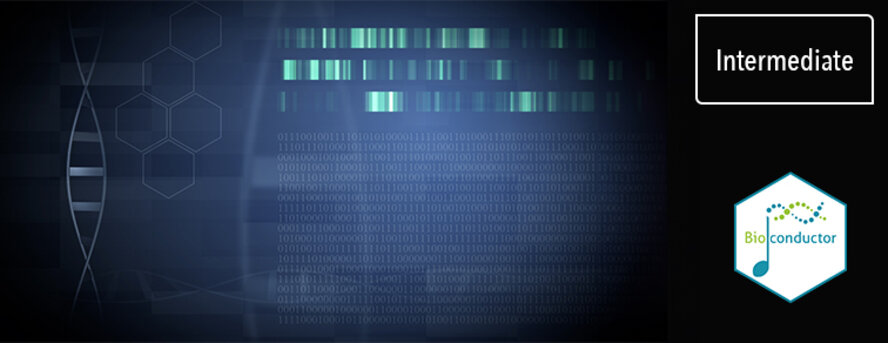Data Science

Introduction to Bioconductor
Harvard University
This course gives you an introduction to the relevant biology and then focuses on the two main measurement technologies: next generation sequencing and microarrays. You will learn how to organize and analyze your own or publicly available data using the open source software Bioconductor.

Advanced Bioconductor
Harvard University
This course is the follow-up course of 'Introduction to Bioconducor'. You will learn how to visualize genome-scale data, and get to know some tools to build interactive graphical interfaces to speed discovery and interpretation.

Introduction to Linear Models and Matrix Algebra
Harvard University
Matrix Algebra underlies many of the current tools for experimental design and the analysis of high-dimensional data. In this introductory data analysis course, you will learn to use matrix algebra to represent the linear models that are commonly used to model differences between experimental units and you will perform statistical inference on these differences.

Statistics and R
Harvard University
This course covers the basics of statistical inference in order to understand and compute p-values and confidence intervals, all while analyzing data with R. R programming examples will be provided in a way that will help make the connection between concepts and implementation. Problem sets requiring R programming will be used to test understanding and ability to implement basic data analyses.

Case Studies in Functional Genomics
Harvard University
In this course you will learn how to perform the standard processing and normalization steps of Functional Genomics, starting with raw data, to get to the point where one can investigate relevant biological questions. Mapping reads, quality assessment of Next Generation Data, analyzing RNA-seq, DNA methylation and ChIP Seq data will be part of this course. Throughout the case studies, there will be exploratory plots to get a general overview of the shape of the data and the result of the experiment.